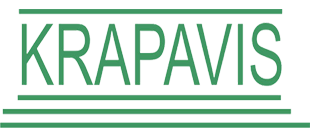Land Forum India comprises of 12 national members:
Areas Coverage : Andhra Pradesh, Karnataka.
Brief Profile of Member : SARRA is working on enabling the small and marginal farmers, and tribal through increased access to resources like forest land, non-timber forest produces (NTFP) and better management of the natural resources through the promotion of “faith” kitchen garden and other natural farming practices. SARRA, as a resource institute, is also building capacity of many organisations working on the region on ecological practices for better management of natural resources and sustainable production. SARRA’s work under ILC is in Andhra Pradesh; they became a member of ILC in 2007.
Contact Person :
Rohini Reddy (Email : kodirohini@gmail.com )
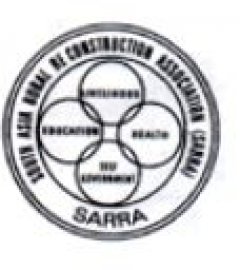
Areas Coverage : Gujarat, Rajasthan, Andhra Pradesh, Odisha, Karnataka, Madhya Pradesh, Maharashtra, Nagaland
Brief Profile of Member : FES works on its core belief of ‘people’s rights on commons including forest’ and has strong technological aptitude supporting the land reform, land tenure security and indigenous rights agenda by ensuring their rights, prioritising the collective rights over the individuals’ of the marginalised community on the common natural resources. FES’s strategy of working closely with the local, district level and state level government machineries helped them to influence policy changes at a time when there is a lack of enabling atmosphere for policy changes specifically on issues of land rights and natural resource management. FES works in Odisha for the ILC projects.
Contact Person :
Bubu Barna (Email : bubup@rediffmail.com )
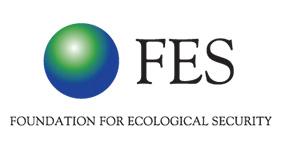
Areas Coverage : Gujarat, Rajasthan.
Brief Profile of Member : MARAG’s commitment to holistic development of the pastoralist communities whose culture, traditions and livelihood are threatened due to the changing land use patterns, land policies, land encroachment, and land grabbing. Besides working with other NGOs and academicians for bringing a national pastoralists policy and changing the definition of “farmers” to include pastoralists for ensuring their rights and entitlements; they are also working on land reforms, forest rights, and land alienation issues as increasingly it is affecting the lives and livelihood of the pastoral communities. MARAG works with pastoralist communities of Gujarat and became ILC’s member in 2012.
Contact Person :
Dinesh Rabari (Email : maragindia@gmail.com)
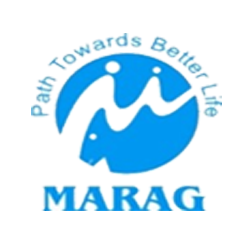
Areas Coverage : Rajasthan
Brief Profile of Member : Prayatna Samiti supports the indigenous communities to get community and individual forest rights and facilitates them to fight against land encroachment and land alienation in Udaipur district of Rajasthan. Apart from supporting the indigenous farmers with the land use planning for increased agricultural production and creating less environmental hazards, and implementing “faith” garden for increased nutritional security, Prayatna Samiti also ensures the rights, entitlements and security of the livestock of the pastoral communities travelling across Rajasthan and Madhya Pradesh. They joined ILC in 2015, and works in Rajasthan.
Contact Person :
Mohan Dangi (Email : prayatnaudr@gmail.com )
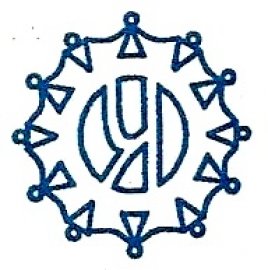
Areas Coverage : Andhra Pradesh
Brief Profile of Member : SDDPA is working to increase the secure land rights of Dalit landless community in the state of Andhra Pradesh by ensuring their access to the settlement land, supporting the community on the land application process and helping them to get the Records of Rights. As the state government takes back the allocated land if the land hasn’t been used effectively, SDDPA is supporting the community to get better agriculture production by using better and sustainable technology. They promote the “Sangam” of community members who through proper training helped other marginalised community to resolve the land disputes and claim the settlement land. SDDPA became ILC member in the year 2005 and used the ILC support to facilitate 30 Sangams, of both men and women, in 30 villages.
Contact Person :
Stephen Livera (Email : stephenlivera@gmail.com )
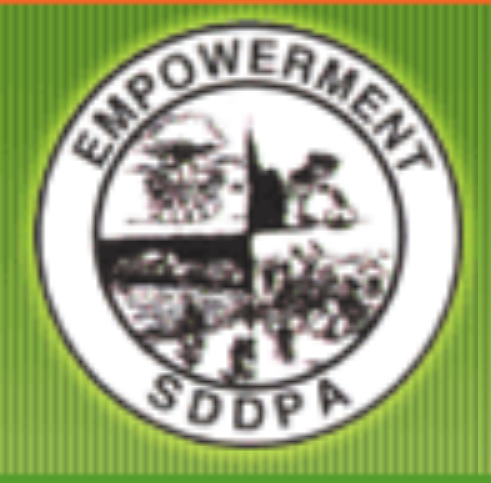
Areas Coverage : Bihar, Chhattisgarh, Kerala, Jharkhand, Madhya Pradesh, Assam, Manipur, Odisha, Rajasthan, Tamil Nadu, Uttar Pradesh.
Brief Profile of Member : Ekta Parishad, a social movement, was successful in the yesteryears to bring the “draft land reform policy” into the national policy dialogue in participation with many key stakeholders including civil society organisations, academicians, policy makers, and large-scale mass mobilisation at the ground level. However, with change at the central government, the implementation of the draft policy and the process of converting it into an act got stalled. Ekta Parishad is working with many state governments and national level government to bring back the land reform agenda into the policy discourse. Besides, its effort to link the urban youth with the rural issues specifically on land rights and peace concern for creating an enabling and sensitive environment for policy change is noteworthy.
Contact Person :
Aneesh Kumar (Email : ektaaneesh@gmail.com)
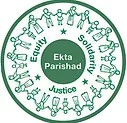
Areas Coverage : Uttar Pradesh
Brief Profile of Member : JKS works directly with the marginalised communities on land entitlements through capacity and knowledge building, and livelihood security through promotion of natural farming techniques. They also work with the tribal bordering the eastern boundary of the state to help them get their rights under FRA. JKS became ILC’s member in 2012, and its work is focussed in the Terai region of Uttar Pradesh.
Contact Person :
Rambhuvan (Email : jks.gkp@gmail.com)
Areas Coverage :Uttar Pradesh
Brief Profile of Member :
BJSA is founded in 1992, it works with the mission to organize different communities and empower them so that they become independent and self-reliant and they live a holistic life and end of child labor.
Contact Person :
Dolatram (Email : bhartiya03@gmail.com)

Areas Coverage : Jharkhand, Tamil Nadu, West Bengal
Brief Profile of Member : SWADHINA’s work is centred around ensuring women land ownership by building their understanding and capacity on different legal rights and entitlements related to Forest Rights Act (FRA 2006), tribal customary laws, and increasing their nutrition security through “Faith” kitchen gardens. Swadhina visions the use of kitchen garden model to increase women’s rights over the homestead land and promotes women collectives for community forest rights and collective management of resources.
Contact Person :
Sarasvati (Email : swadhina_org@yahoo.com )
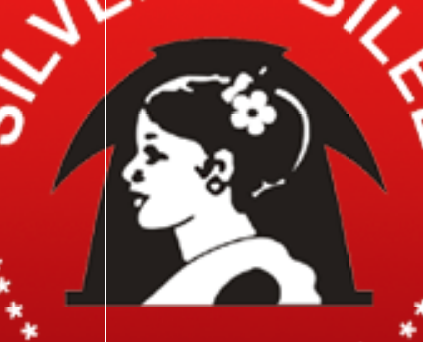
Areas Coverage :Uttar Pradesh, Uttarakhand
Brief Profile of Member :
Social Development Foundation was founded in October 1998 with an aim to strengthen the autonomous grassroots movements, build secular democratic leadership among the most marginalized communities and develop scientific temper among people. The organisation reached the most marginalized communities and started the land literacy campaign among them. One of the oldest members of the
International Land Coalition, SDF has been a leading organisation of the ILC network in India with core focus on Land Reforms with Right Based approach. Though the organisation was constituted in Delhi, its main grassroots operations are mainly in the states of Uttar Pradesh and Uttarakhand states. SDF also provide necessary support to organise things in Delhi to engage with the policy makers, social
movements, academics, lawyers and civil society organisations.
Documentation and training has been an important part of the organisations. Using the right based approach SDF has been able to get many communities land entitlements in various places.
SDF along with other community based organisations have used the foot-marches to highlight the issues of landlessness and other forms discrimination particularly of the Dalits, Adivasis, backward communities as well as minorities.
Vidya Bhushan Rawat is one of the founders of the SDF and is preparing a new young team to lead the organisation in the coming days.
Contact Person :
Vidhya Bhusan (Email : sdfindia@gmail.com or vbrawat@gmail.com.
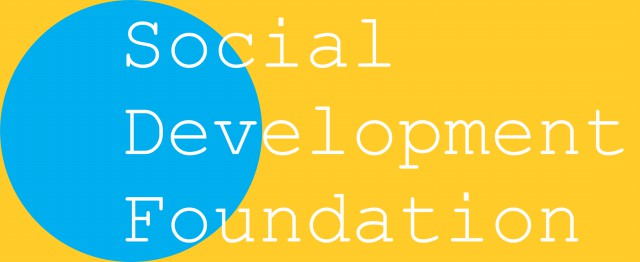
Areas Coverage : Bihar
Brief Profile of Member : VSK has been working to impart better agriculture technology and practices through the government supported Krishi Vigyan Kendra (Agriculture Science Centre). Recently, with the support of the ILC, VSK has initiated to work with the forest dwelling community to increase their land rights through Forest Rights Act.
Contact Person :
Sadanad Ray (Email : vsk_adhaura@yahoo.co.in )
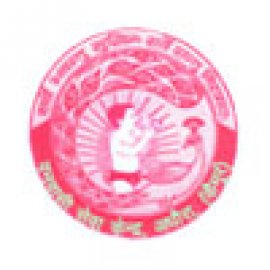
Areas Coverage : Gujarat
Brief Profile of Member :
The Working Group of Women for Land Ownership (WGWLO) is Gujarat state based network committed to sustained grassroots action and policy advocacy around the issue of women’s land rights, including access and ownership over Land and other productive resources. Initiated in 2002, WGWLO today has a diverse membership of more than 40 NGOs and CBO (community based organization) and individuals with varied expertise, across 17 out of total 33 districts of Gujarat.
In its 15 years of functioning, WGWLO has been successfully able to address the issue of women’s land ownership from the perspectives of women’s rights and empowerment as well as livelihood enhancement. Since 2009 onward, expansion of land rights agenda has come into practice – from women’s ownership of private land, the network has expanded land rights of women to public land including forest land, common land and government land from a gender perspective. The agenda of land rights and right to productive resource was gradually elaborated and consolidated by working with women farmers for sustainable agriculture. The Network uses its collective strength to lobby for change at various levels through forging strategic alliances with existing other Networks, influencing Government and non-Government agencies, and mass media.
The three main ways by which women can own land, they are – inheritance and partition of land for women’s ownership, purchase from the market and state transfers. The WGWLO initially decided to focus on private land as 86% of arable land in India is privately owned. While looking at wider land issues, WGWLO has articulated usufruct rights of women, women farmer’s definition (considering all women as farmers, especially pastoral communities, salt farmers) and rights.
Contact Person :
Shilpa Vasavada (Email : vasavada.shilpa@gmail.com)

Areas Coverage : Jharkhand, Rajasthan
Brief Profile of Member :
Society for Promotion of Wastelands Development (SPWD), a national NGO has been playing a catalytic role in reversing the process of degradation of land and other related natural resources in partnership with grassroots NGOs and community institutions. SPWD’s mission is “to prevent, arrest and reverse degradation of life support systems, particularly land and water, so as to expand livelihood opportunities in a sustainable and equitable manner through people’s participation”. SPWD’s focus is on obtaining knowledge from the grassroots level and influencing the larger systems, policies and programmes of the government as well as other concerned agencies.
SPWD’s origins in 1982 can be traced to the need to do something about land degradation, which was assuming alarming proportions by the late 70s and early 80s. The understanding was that degraded lands could be reclaimed and put to more productive use. With a livelihood focus to natural resource management, SPWD focused on identification of needs of the local communities on one hand, documentation of technologies in the field and development of appropriate institutional mechanisms to deal with the concrete issues emerging on the ground. SPWD drew its early lessons and inspiration from its projects at Sukhomajiri (Haryana) and Jawaja (Rajasthan), which demonstrated models of equitable sharing of additional resources generated by participatory natural resource conservation action.
In the beginning, SPWD’s efforts were concentrated on initiating new field projects; commissioning of selective research studies through universities; and raising of social awareness on the existence of wastelands and the opportunities available for their rapid restoration. The foremost challenge was of defining what constitutes wastelands and the study ‘Estimate of wastelands in India’ was the first step in developing a terminology broadly identifying, classifying and locating different types of wastelands. This helped in prioritizing problem areas and in developing programmes appropriate to different locations and problem types.
Water, land, forests, pastureland and livestock development have been the central point for an understanding of different types of ecological systems and their relationship with livelihoods. The diversity of initiatives spawned has led SPWD to develop its understanding on issues relating to ecology and livelihoods on the one hand and a study of governance structures appropriate for multi-layered, multi-nested natural resources on the other.
SPWD has worked in collaborative projects with over hundred local voluntary agencies, across 17 States in 11 agro-climatic zones of India mainly through socio-technical interventions. SPWD’s work can be broadly categorised into four themes, with many sub-themes and cross-cutting aspects such as gender, environment benefits and climate change. The themes are – forest management and governance; sustainable agriculture; watershed development, tank rejuvenation and water governance; and land use management.
SPWD is an inclusive entity and opposes discrimination of any form based on grounds of region, community, caste, religion, gender or colour.
Contact Person :
Sharat Singh (Email : sharatsingh1@gmail.com )

Areas Coverage : Rajasthan, Madhya Pradesh, Haryana (As many as 14 Districts of Rajasthan, Morena, Bhind and Gwalior Districts of Madhya Pradesh, Mahendragarh and Mewat Districts of Haryana).
Brief Profile of Member :
‘Krishi Avam Paristhitiki Vikas Sansthan’ (abbreviation: KRAPAVIS), which literally means “Institute for the Development of Ecology and Agriculture-Livestock”, works with a clear mission: the betterment of ecological, agricultural and livestock practices with a view to conserving biodiversity and ensuring sustainable livelihoods for rural, indigenous, and pastoral communities. KRAPAVIS was established in 1992, and has been working on different aspects of biodiversity conservation, ethno-veterinary practices, sustainable agriculture, water management, raising plant nurseries and planting trees, climate change, with particular emphasis to Orans (CCAs- community conserved areas) conservation, CPRs (common natural property resources) management and contribute to development of people friendly policies. KRAPAVIS is also working to save endemic and endangered species of flora & fauna, and bringing about greater livelihood security for the rural poor. The approaches adopted include cataloguing, reviving, campaigning and training.
In brief, our major focus areas are;
- Orans (CCAs) & Biodiversity Conservation
- Pastoralism & Livestock Development
- Agriculture & Ecological Sustainability
- Vocational Skills Building & Women-in-Development (WID)
- Livelihoods & Rural Development
KRAPAVIS operates at 3-L (three layers) approach; one, preserving and enhancing biodiversity and ecosystems through various safeguarding techniques such as tree and grass planting, soil restoration and water harvesting & conservation; second, lobbying for conservation with government and collaborating with various agencies; and the third, engaging the communities through participatory stakeholder training and guidance, with an emphasis on women empowerment.
KRAPAVIS has so far successfully conserved Orans including rejuvenation of biological diversity and protection of Orans in 134 villages of Rajasthan, resulting in development of micro level biodiversity hotspots with active participation of local communities. Empowered community especially women towards active participation and management of individual and common natural resources, including agriculture, livestock and vocational livelihoods. A cadre of over 900 women, youth and community leaders are actively addressing the issues without much external support. Our continuous dialogue with the government over the years has helped Orans getting recognition in Rajasthan. Precisely, KRAPAVIS work serves as a model for community engagement at multiple levels to realize tangible improvements in local livelihoods as well as in ecology, and enabling future generations to continue their productive stewardship of the land.
Contact Person :
Aman Singh (Email : krapavis_oran@rediffmail.com)
